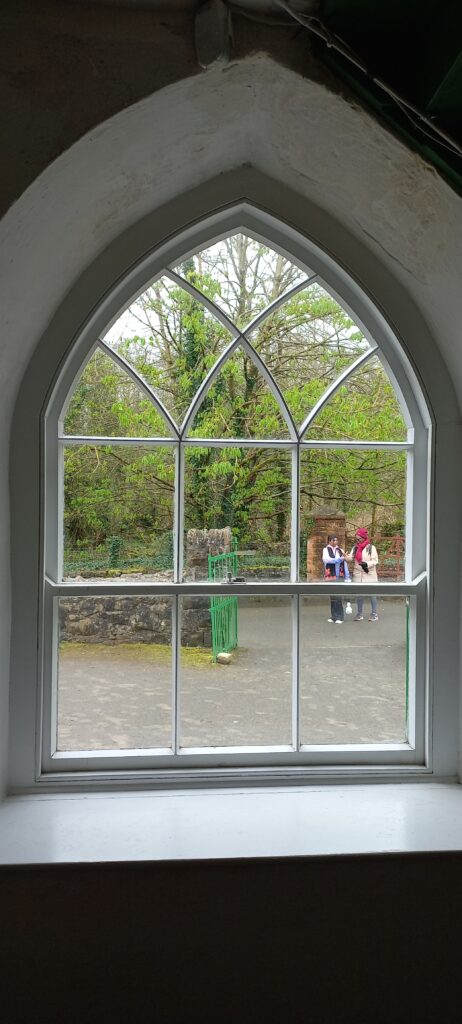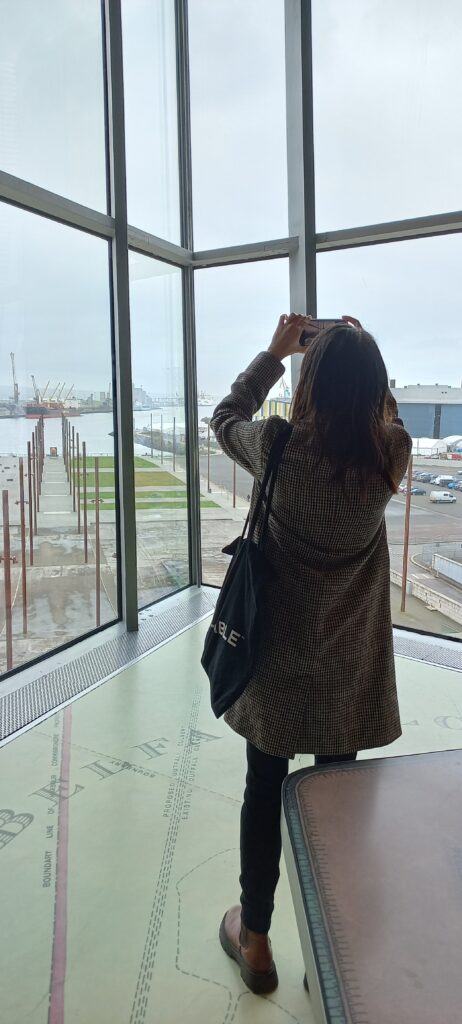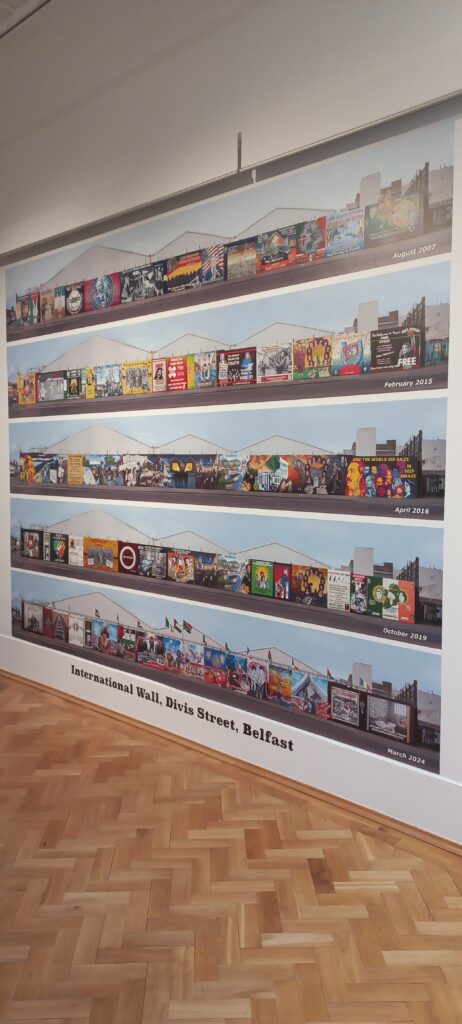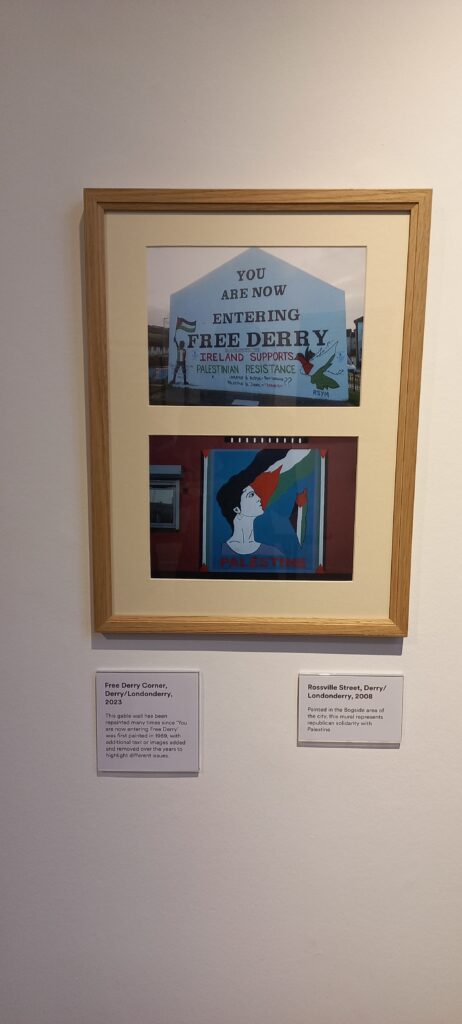Reflecting on the 2024 ICOM UK Conference: report from Nourah Sammar
This week we are reflecting on one of our first 2024 Legacy Projects, visiting the 2024 ICOM UK conference.
From 8 to 14 April the ITP team travelled to Belfast in Northern Ireland to take part in the conference, with this year’s theme being Common Ground: the role of museums in divided communities.
We were delighted to be joined by Namrata Sarmah, Freelance Museum Consultant and Researcher (India, ITP 2018); Nourah Sammar, MA Student, Academy of Korean Studies (Palestine, ITP 2009); Chantal Umuhoza, Curator, Rwanda Cultural Heritage Academy (Rwanda, ITP 2018).
Our final report is written by Nourah Sammar, MA Student, Academy of Korean Studies (Palestine, ITP 2009).
With the gracious support of the British Museum’s International Training Programme, I joined the team to attend the ICOM UK 2024 conference at the Ulster Museum. Belfast is a city I have read and learned about for a long time. However, it was a different experience to be present there. The ITP has always provided the absolute best experiences.
In a couple of months, it will be 15 years since I first participated in the ITP summer programme. Many team members and fellows I met in Belfast were the first opportunities to meet in person, which was an outstanding experience. I was thrilled to meet Claire again, who has been working on taking us on this fantastic journey with the ITP.
Belfast’s people were friendly, and the general mood was lovely. As it was a place that experienced challenging circumstances, it was a prosperous opportunity to learn many lessons on various ways of dealing with different difficulties.
We started our programme by exploring Belfast city’s challenging history by visiting Belfast’s murals. I stood in front of the walls that still separate communities who identify differently, in my perspective, as an aftermath of a centuries-long colonial legacy with its intricate and snowballing complications. I viewed the murals, predominantly in the nationalist area in West Belfast, as mirrors of truth, connecting humanely with others who suffer injustice across the globe. Seeing the recent murals in support of Palestinian Gaza was hopeful.
We visited the 120-year-old Belfast Cathedral, the Cathedral of St Anne’s, which was beautiful. I learned about the invaluable contribution of talented women in Belfast, crafting many marvellous pieces, which is another thing I needed to be aware of.
Later that day, we visited the Crumlin Road Gaol, discovering the 150-year history of the only remaining Victorian-era prison. Although we need to learn more about this part of history, it was overwhelming to follow in the footsteps of over 25,000 prisoners.
On the second day, we visited the Transport Museum, Cultra. It was an ample space with many remaining vehicles of all sorts. We observed the development of models and the changes in the adverts on board.
Afterwards, we headed to the Ulster Folk Museum, Cultra. It is a living museum that was opened in 1967. I found several things impressive, from preserving the tangible, such as the buildings collected from different areas and eras, to the efforts of protecting the intangible, such as the crafts. Observing the animals, enjoying nature, and breathing fresh air were a sheer joy.

On our third day, we visited Titanic Belfast. It had entertaining experiences, which, in some studies, helped stimulate learning and memory formation. I wouldn’t have expected a cable car to drive us through screens displaying the history of building the ship and the people working on board, amongst whom some lost their lives due to the challenging circumstances. Some installations interfered with others, creating clutter. Still, there were many beautiful displays, including the final installation with the model of the boat and the colourful displays chronologically narrating stories of the people and their hopes for crossing the ocean into a new life.

HMS Caroline is a decommissioned light armoured cruiser that operated during the First World War. It was the last surviving ship afloat that took part in the Battle of Jutland. It was the first ship of its kind that I stepped on. I learned that steel was contaminated with background radiation because of the atomic bomb. Caroline was made before and, thus, escaped.
On our last visit, we saw “The Troubles and Beyond” exhibition at the Ulster Museum. Community members praised this exhibition, and the taxi driver told us that they did a good job balancing the different perspectives and respectfully telling the stories of each side of the Troubles.


On a global scheme for a remarkably sensitive exhibit, I wonder why they used “Yom Kippur” to name the 1973 war, also called the October War, the Ramadan War… More adjectives and names about the MENA (Middle East & North Africa) would leave one wondering why things were narrated this way. Indeed, it is the story of Northern Ireland; however, we are all part of a world story and pieces are connected. Undoubtedly, world stories can be complex. Hence, there is a crucial need for curators and visitors to compel more critical versions of the stories. The curators assembled a section where visitors can write their suggestions and notes. Moreover, the Ulster Museum had an exhibition called Drawing Support about the political mural tradition in Northern Ireland. The exhibition offered a questionnaire for people interested in participating.
In my reflections, colonial history crossed my mind on HMS Caroline, the Transport Museum, and Titanic Belfast, where there were constant talks about immigration. However, I haven’t read the word colonization, apart from the International Solidarity section of the Drawing Support exhibition mentioning anti-imperialist groups.
Continuing with my reflections on the trip, the tour guides were terrific, especially for the Black Cab Tour, HMS Caroline, and the Folk Museum team; the passion of these professionals enjoying their jobs even after what could have been a long, repetitive cycle of tasks. It is essential to celebrate these exemplary facts as well.
I was thankful to attend the conference. Speakers emphasized telling the truth and sharing. The sense of acceptance was vital to all the parties in Ireland, Rwanda and Bosnia and Herzegovina. People are still seeking to share their stories as a survival mechanism, healing, a means for continuation, and an aspiration to thrive for future generations. Museums and museum professionals are here to inspire that forward.

I am currently writing my MA thesis on museums. The nourishing environment of museum professionals and fantastic Belfast has given me much energy to complete my work adequately. One example I noticed from my academic readings was using “experiential marketing” as a marketing strategy in the cultural and tourism sector. This strategy has an audience, especially among the younger generations, and I noticed that both in The Crumlin Road Gaol and at the Titanic Belfast experiences.
